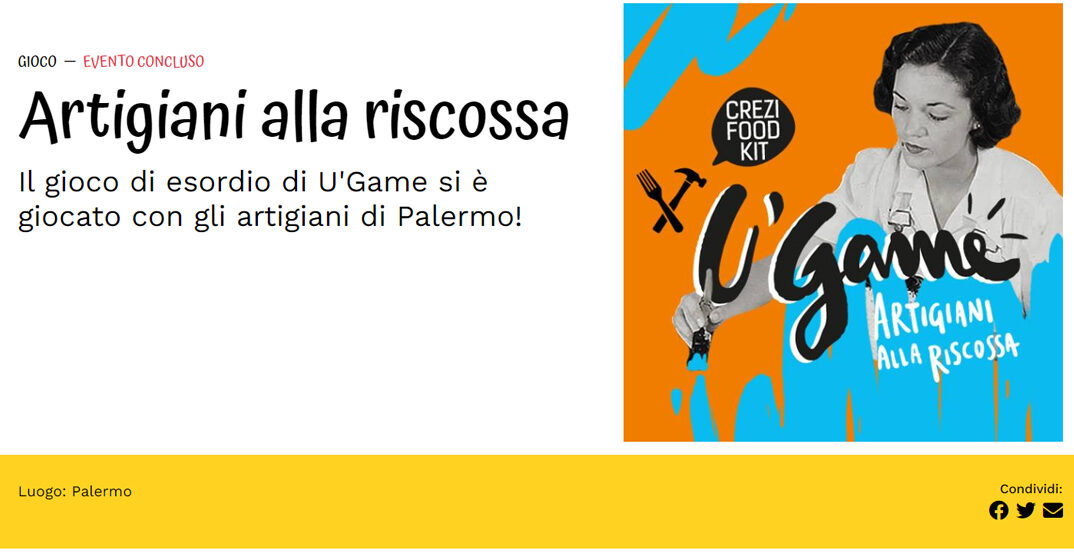Other games
Artisans to the Rescue (David Leone)

Artisans to the Rescue is the result of gathering 50 artisans after successive workshops in Palermo, adapted to the didactic format of the VerSus+ project, aimed at disseminating the relationships and narratives collected. It takes the form of an urban video game, structured as a series of tests divided into 6 different areas: observation tests, construction tests, interaction tests, collection tests, anecdote tests, and adventure tests.
This set of tests is the foundation upon which most of the urban games developed by U’Game have been built.
- The observation tests connect with the physical world and are structured so as to bring players to a place and point out particular details to them. In this way, you can ask the players to reach a certain square and pay attention to some details, or you can take them to visit a specific workshop, in order to point out interesting elements.
- The construction tests are unique interaction trials in which players are asked to build objects. In the game in question, the players are asked to find a craftspeople who is willing to build together with them an object related to food.
- The interaction tests encourage the interaction between players and citizens or, in this case, with craftspeople. For example, the players were asked to try to sell an object produced by a craftsperson of their choice. Another very interesting interaction test was that of the ‘hostage’ in which teams received an object produced by a craftsperson and had to bring it back to him/her.
- The collective tests are aimed at making the game visible to the city and are carried out in the form of flash mobs which highlight the themes narrated by the project.
- The anecdote tests serve the purpose of revealing news and anecdotes regarding the theme of the game to the players.
- The adventure trials are site-specific games that offer a complex interaction. In particular, they are divided into an ordered series of observations that lead to the resolution of an enigma.
More than 100 people participated in the game, which was the first of a series of great successes in thegames developed and organised by U’Game.